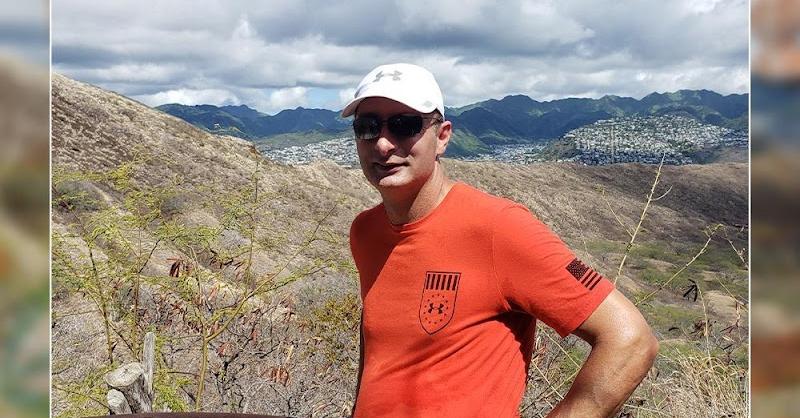In the fast-paced world of warehouses, manufacturing plants, and distribution centers, the smooth flow of operations depends on the efficiency and safety of one critical element: forklifts. Forklifts are the workhorses of these industries, handling the heavy lifting and transportation of goods that keep our supply chains running. But behind the scenes, there are unsung heroes ensuring that these powerful machines operate smoothly and safely. Among them is Robert Chiocca, a seasoned forklift operator and inspector, who understands the vital role he plays in maintaining workplace safety.
The Heart of Operations
Forklifts are indispensable in countless industries, from construction and agriculture to warehousing and logistics. They are responsible for moving heavy loads with precision, navigating tight spaces, and stacking goods to optimize space. However, the power and versatility of these machines come with inherent risks, both for the operators and the surrounding workforce. This is where forklift operators like Robert Chiocca step in to ensure that these powerful tools remain a boon rather than a bane.
The Duties of a Forklift Operator
Robert Chiocca’s daily routine involves much more than simply driving a forklift. His responsibilities extend to a broad range of critical tasks that ensure the safety and efficiency of the workplace. These include:
Vehicle Inspection: Before each shift, Robert meticulously inspects his forklift. He checks for any signs of wear and tear, loose nuts and bolts, and ensures that all safety features are functioning correctly. These pre-shift inspections are crucial to identifying and addressing potential issues before they escalate.
Load Handling: Robert understands the importance of proper load handling. He knows the weight limits of his forklift and ensures that loads are stacked securely and evenly to prevent accidents, spills, or tip-overs.
Safe Operation: When operating the forklift, Robert follows safety protocols to the letter. He maintains a safe speed, keeps a clear view of his surroundings, and uses horns and warning signals as needed to alert coworkers of his presence.
Communication: Effective communication is key in a bustling workplace. Robert communicates with his colleagues to coordinate movements and avoid collisions or accidents. Clear communication is especially crucial when working in confined spaces or areas with limited visibility.
Training and Certification: Robert Chiocca has undergone extensive training and is certified to operate forklifts. He understands the nuances of forklift operation, safety regulations, and emergency procedures, ensuring that he is well-prepared for any situation that may arise.
The Role of Forklift Inspectors
While forklift operators like Robert play a pivotal role in maintaining safety, forklift inspectors are equally vital to the process. Forklift inspectors are responsible for conducting thorough examinations of forklifts to identify potential issues, perform necessary maintenance, and ensure that these machines are in optimal working condition. These inspectors are like the doctors of the forklift world, diagnosing and treating ailments before they become life-threatening.
Robert Chiocca knows firsthand the significance of regular inspections. “Inspectors are our lifeline,” he says. “Without them, we’d be operating blind, not knowing if the forklifts we rely on are in good shape or not.”
Forklift inspectors like Robert’s colleague, Sarah Hernandez, have a challenging job that demands a keen eye for detail and an in-depth knowledge of forklift mechanics. Their duties include:
- Thorough Examination: Inspectors like Sarah examine every aspect of a forklift, from the engine and transmission to the brakes, hydraulics, and safety features. They look for signs of wear and tear, loose components, or malfunctioning parts.
- Documentation: Inspectors maintain detailed records of their examinations, noting any issues discovered and the actions taken to address them. This documentation is crucial for tracking the maintenance history of each forklift.
- Maintenance: When inspectors identify problems, they coordinate with maintenance teams to ensure that repairs are carried out promptly. This proactive approach prevents minor issues from escalating into major safety hazards.
- Training and Guidance: Forklift inspectors also provide guidance and training to forklift operators, helping them understand how to spot potential issues during their daily inspections and use the machines safely.
The Synergy Between Operators and Inspectors
The synergy between forklift operators like Robert Chiocca and inspectors like Sarah Hernandez is at the core of workplace safety. Operators rely on inspectors to maintain the machines they operate, while inspectors rely on operators to report any abnormalities or concerns they notice during their daily shifts. This collaborative relationship ensures that forklifts remain safe, reliable, and productive.
Robert emphasizes this collaborative spirit, saying, “We’re all in this together. Forklift operators and inspectors work hand in hand to make sure we can do our jobs safely and efficiently. It’s a team effort.”
Conclusion
Forklift operators and inspectors are unsung heroes in the world of workplace safety. Their dedication, attention to detail, and commitment to following protocols ensure that forklifts, which are essential to numerous industries, are operated safely and efficiently. Through their coordinated efforts, they minimize the risks associated with these powerful machines, preventing accidents and injuries in the workplace.
Robert Chiocca, like many forklift operators, understands that his job goes beyond simply moving goods from one place to another. It involves a deep sense of responsibility for the safety of himself and his colleagues. He knows that when he steps into his forklift, he carries the weight of not just the loads he transports but also the well-being of everyone around him.

